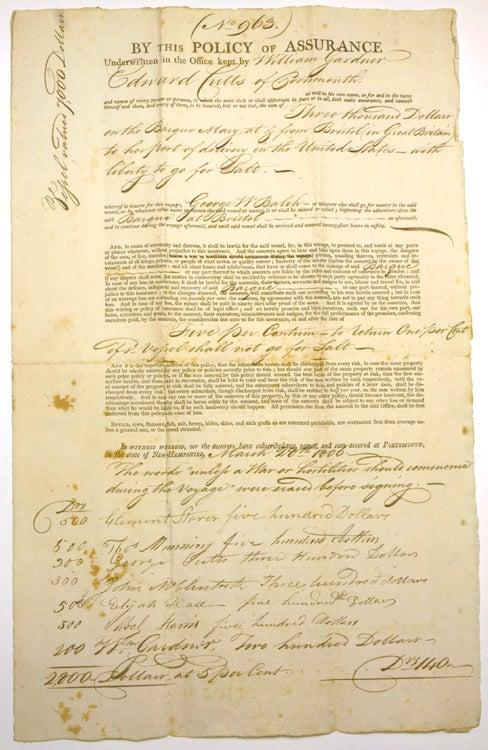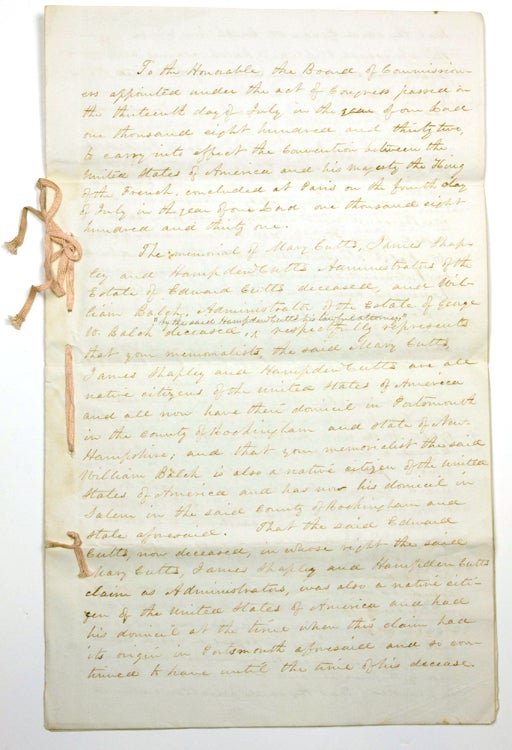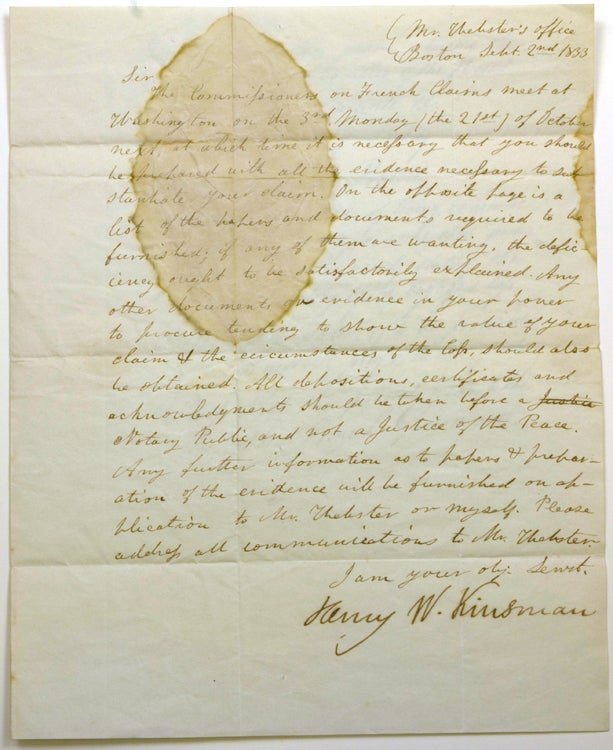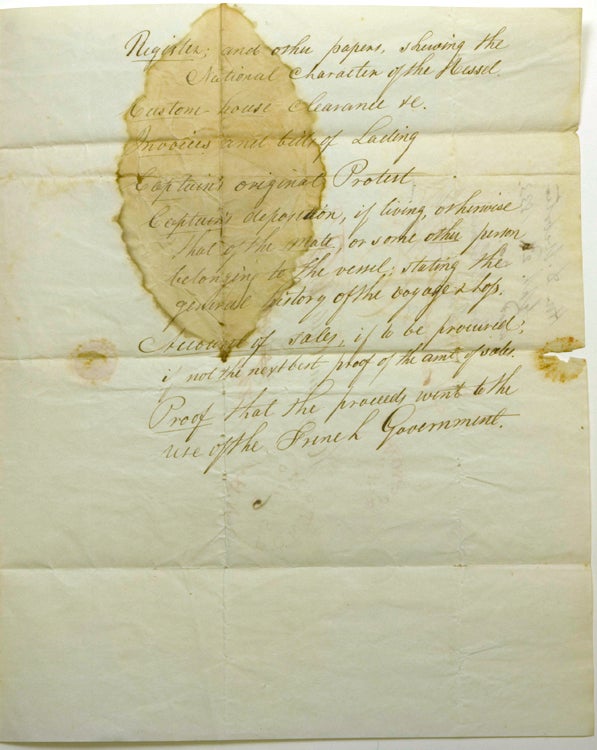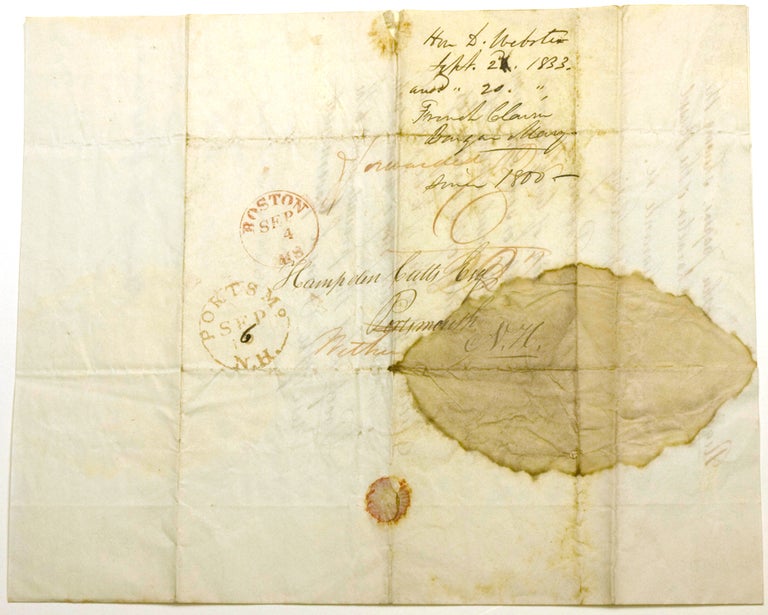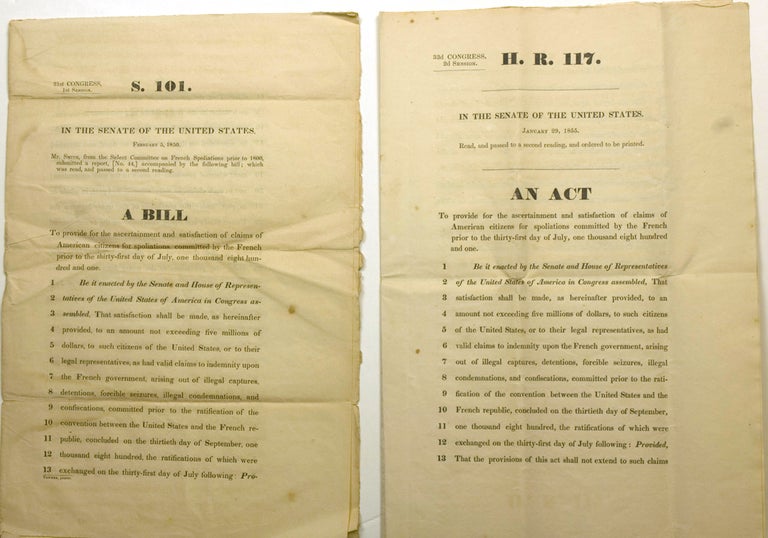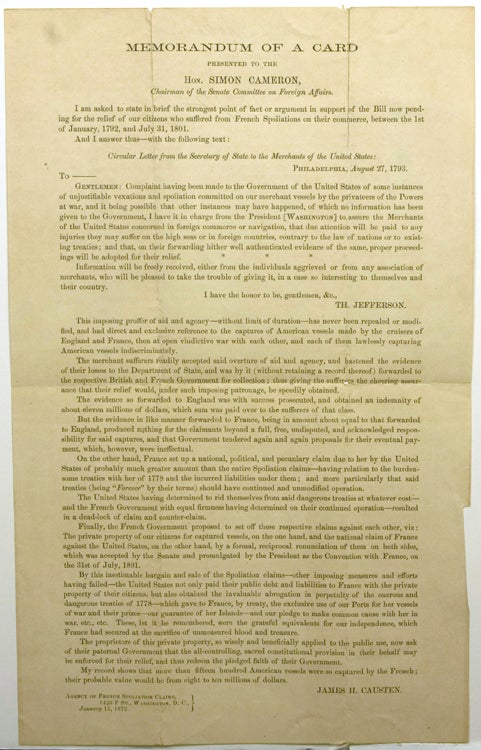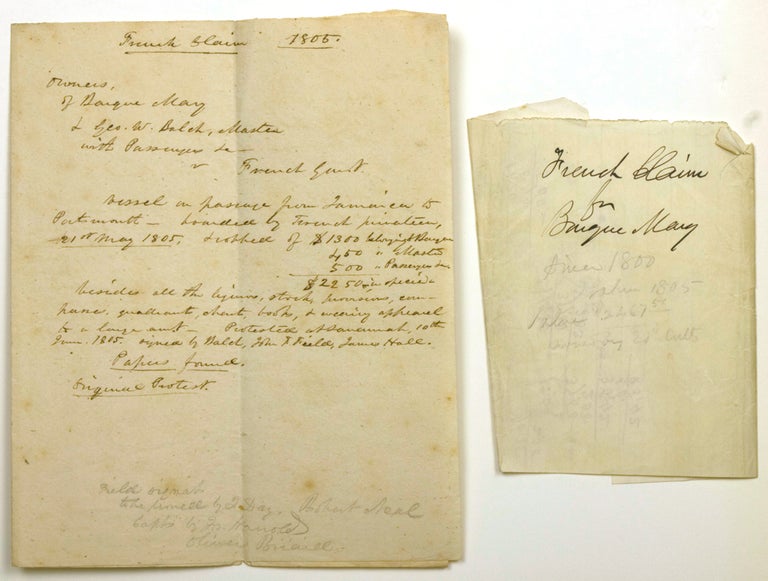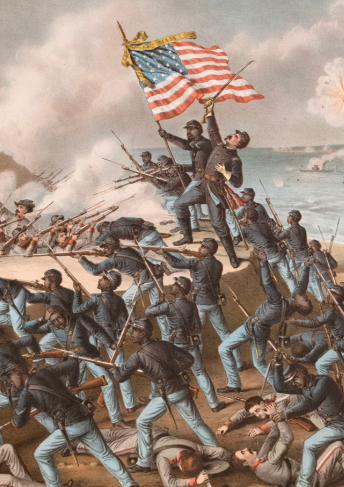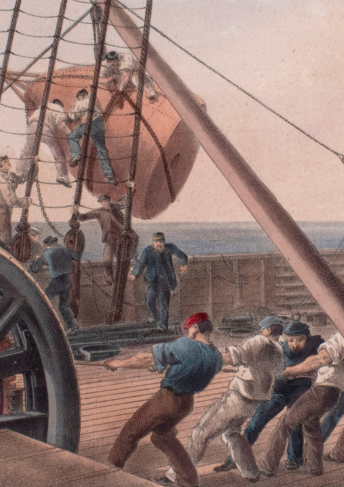VICTIM OF A FRENCH PRIVATEER
French Spoliation Claims and Policy of Assurance of the American merchant vessel “Mary”.
Portsmouth, [NH]: 1805-1872.
Price: $1,950.00
About the item
Three manuscripts (9 pp.), pen and ink on paper, docketing on verso; One Document (1 p.) partially printed and accomplished, docketing on verso; Three documents (16 pp.), docketing on verso. Various sizes. VICTIM OF A FRENCH PRIVATEER. Old folds, minor foxing, very good.
Item #305422
This is a fascinating collection chronicling an episode of the "Quasi-War" between the US and France. The Barque ‘Mary” which hailed out of Portsmouth, New Hampshire, was attacked and boarded off the coast of Savannah, Georgia. An article in "The Balance and Columbian Repository, No. 28, Vol. 14, July 9, 1805," reported the harrowing events as told by the ship’s Master, William Balch, “…our crew were ordered on board the privateer, and threatened with flogging from the captain down to the boy. One of the hands was brought to the gun, with a rope around his neck... The Captain was also threatened, and they were on the point of lashing his hands when the boat came alongside with the money….they robbed us of...almost every thing they could lay their hands on and whatever they could not take away they destroyed…leaving scarce enough for our subsistence.”
Documents include:
1. Memorial Petition of the heirs of ship owner Edward Cutts and Ship’s Master, George Balch, to the “Honorable Board of Commissioners appointed under the act of congress…,” notarized and dated 3rd day of January, 1833, detailing the attack on the Mary and an account of money and cargo stolen. It reads in part: “That on the close of the same day of said vessel’s departure from Jamaica… a small sail appeared to the eastward which proved to be a privateer and in chase of said Barque…the said privateer came up with and fired a shot over said Barque, hoisted French colors and ordered the Captain of said Barque to send his boat or board of said privateer or they would sink the Barque.” Edward Cutts (1763-1824) was a Portsmouth merchant and ship owner, and the son of Capt. Samuel Cutts and Anna (Holyoke). He served as a selectman, representative of the legislature, collector of revenue, and Justice of the Peace for Rockingham County.
2. Original Field Protest, dated 1805, which reads in part: “Vessel in passage from Jamaica to Portsmouth - boarded by French privateers 21st May 1805, robbed of…$2,250 in species..
3. Autograph Letter, Signed (Henry W. Kinsman), reading in part: “The Commissioners on French Claims meet at Washington on the third Monday (the 21st) of October next, at which time it is necessary to substantiate your claim.” Henry Willis Kinsman (1803-1859) graduated from Dartmouth College in 1822, and read law with Daniel Webster (1782-1852), with whom he was a partner in 1826. Kinsman represented Boston in the State Legislature, from 1833-1835.
4. Policy of Assurance underwritten by William Gardner, insuring Edward Cutts of Portsmouth for the sum of “Three thousand Dollars on the Barque Mary, at & from Bristol (in Great Britain) to her port of delivery in the United States - with liberty to go for Salt.” William Gardner (1751-1834) was a frequent underwriter who collaborated with other individuals to insure ships. Gardner began his career in the mercantile trade as an apprentice to Joshua Wentworth. He did commissary work during the Revolution and after the war was appointed Loan and Pension officer of New Hampshire by George Washington. He was replaced by John Pierce during the John Adams administration but was later reappointed by Thomas Jefferson.
5. Memorandum of a Card Presented to the Hon. Simon Cameron, Chairman of the Senate Committee on Foreign Affairs, reading in part: I am asked to state in brief the strongest point of fact or argument in support of the Bill now pending for the relief of our citizens who suffered from french Spoliation on their commerce, between the 1st of January 1792, and July 31, 1801. And I answer thus… Agency of French Spoliation Claims…January 15, 1872.” James Hyman Causten, Sr. (1788-1874) came from a merchant family of baltimore. A Naval veteran of the War of 1812, Causten began his legal career as claims agent for for French Spoliation in 1826.
6. Senate Bill S. 101, “A Bill to provide for the ascertainment and satisfaction of claims of American citizens for spoliations committed by the French prior to the thirty-first day of July, one thousand eight hundred and one.” Voted on and passed to a second reading in the 1st Session of the 31st Congress.
7. Senate Act H.R. 117, “Read, and passed to a second reading and ordered to be printed… An act to provide for the ascertainment of claims of American citizens or spoliations committed by the French prior to July 31, 1801.” H.R. 117 was vetoed by President Franklin Pierce February 17, 1855.

